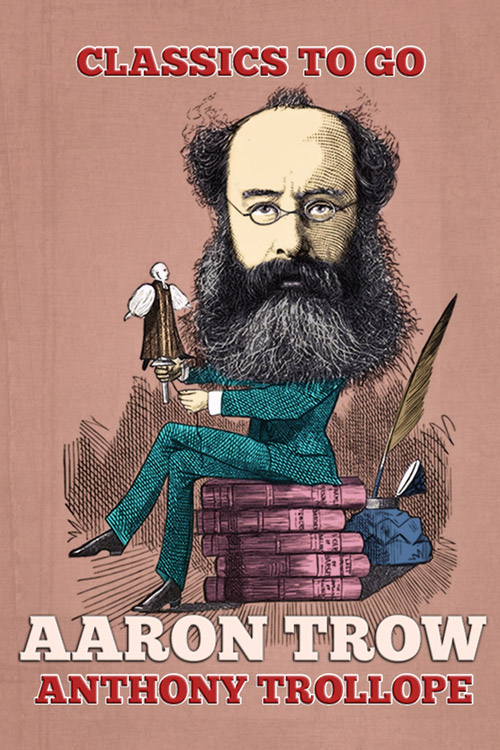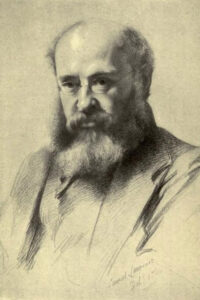
Aaron Trow
I would wish to declare, at the beginning of this story, that I shall never regard that cluster of islets that we call Bermuda as the Fortunate Islands of the ancients. Do not let professional geographers take me up and say that no one has so accounted for them and that the ancients have never been supposed to have gotten themselves so far westwards. What I mean to assert is this—that, had any ancient been carried thither by enterprise or stress of weather, he would not have given those islands so good a name. I consider that the Neapolitan sailors of King Alonzo should have been wrecked here more likely. The vexed Bermoothes is a good name for them. There is no getting in or out of them without the most significant difficulty and a patient, slow navigation, which is heart-rending. I can imagine that Caliban should have lived here; Ariel would have been sick of the place, which is inevitable; and Governor Prospero should have been willing to abandon his governorship, which I believe to have been only natural. When one regards the present state of the place, one is tempted to doubt whether any of the governors have been conjurors since his days.
As the world knows, Bermuda is a British colony where we maintain a convict establishment. Most of our outlying convict establishments have been sent back upon our hands from our colonies, but here one is still maintained. There is also a solid military fortress in the islands, though not a fortress that looks magnificent to the eyes of civilians, as do Malta and Gibraltar. There are also here some six thousand white people and some six thousand black people, eating, drinking, sleeping, and dying.
The convict establishment is Bermuda’s most notable feature to a stranger, but it does not seem to attract much attention from the regular inhabitants. There is no intercourse between the prisoners and the Bermudians. They rarely see the convicts, and the convict islands are rarely visited. As to the prisoners themselves, of course, it is not open to them—or should not be open to them—to have intercourse with anyone but the prison authorities.
There have, however, been instances in which convicts have escaped from their confinement, and made their way out among the islands. Poor wretches! As a rule, there is little chance for anyone to escape.
Read or download Book
Anthony Trollope
Anthony Trollope (24 April 1815 – 6 December 1882) was an English novelist and civil servant of the Victorian era. Among his best-known works is a series of novels collectively known as the Chronicles of Barsetshire, which revolves around the imaginary county of Barsetshire. He also wrote books on political, social, and gender issues and other topical matters. Trollope’s literary reputation dipped during the last years of his life, but he regained somewhat of a following by the mid-20th century.
Biography
Anthony Trollope was the son of barrister Thomas Anthony Trollope and the novelist and travel writer Frances Milton Trollope. Though a clever and well-educated man and a Fellow of New College, Oxford, Thomas Trollope failed at the Bar due to his bad temper. Ventures into farming proved unprofitable, and he did not receive an expected inheritance when an elderly childless uncle[a] remarried and had children. Thomas Trollope was the son of Reverend (Thomas) Anthony Trollope, the rector of Cottered, Hertfordshire, himself the sixth son of Sir Thomas Trollope, 4th Baronet. The baronetcy later came to descendants of Anthony Trollope’s second son, Frederic. As a son of the landed gentry, Thomas Trollope wanted his sons to be raised as gentlemen and to attend Oxford or Cambridge. Anthony Trollope suffered much misery in his boyhood owing to the disparity between the privileged background of his parents and their comparatively small means.
Born in London, Anthony attended Harrow School as a free day pupil for three years from the age of seven because his father’s farm, acquired for that reason, lay in that neighbourhood. After a spell at a private school at Sunbury, he followed his father and two older brothers to Winchester College, where he remained for three years. He returned to Harrow as a day boy to reduce the cost of his education. Trollope had some very miserable experiences at these two public schools. They ranked as two of the élite schools in England, but Trollope had no money and no friends and was significantly bullied. At the age of 12, he fantasized about suicide. He also daydreamed, constructing elaborate imaginary worlds.
In 1827, his mother, Frances Trollope, moved to America with Trollope’s three younger siblings to Nashoba Commune. After that failed, she opened a bazaar in Cincinnati, which proved unsuccessful. Thomas Trollope joined them briefly before returning to the farm at Harrow, but Anthony stayed in England throughout. His mother returned in 1831 and made a name for herself as a writer, soon earning a good income. His father’s affairs, however, went from bad to worse. He gave up his legal practice entirely and failed to make enough income from farming to pay rent to his landlord, Lord Northwick. In 1834, he fled to Belgium to avoid arrest for debt. The whole family moved to a house near Bruges, where they lived entirely on Frances’s earnings.
In Belgium, Anthony was offered a commission in an Austrian cavalry regiment. To accept it, he needed to learn French and German; he had a year to acquire these languages. To understand them without expense to himself and his family, he took a position as an usher (assistant master) in a school in Brussels, which position made him the tutor of 30 boys. After six weeks of this, however, he received an offer of a clerkship in the General Post Office, obtained through a family friend. He returned to London in the autumn of 1834 to take up this post. Thomas Trollope died the following year.
According to Trollope, “the first seven years of my official life were neither creditable to myself nor useful to the public service.” At the Post Office, he acquired a reputation for unpunctuality and insubordination. A debt of £12 to a tailor fell into the hands of a moneylender and grew to over £200; the lender regularly visited Trollope at his work to demand payments. Trollope hated his job but saw no alternative and constantly feared dismissal.






